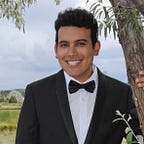The Three Choirs Festival
Choir has always been a significant part of my life. As I reflect on my high school and college years, some of my favorite times were during the gathering of musicians who would lift their voices to sing as one. Music connects people. It creates an excitement and serenity that are beyond many other feelings.
There are many different genres and styles for choir, and I have loved participating in those I have been a part of. They gave me experience, confidence, and they also helped me grow a deeper connection with music.
During my first year of college, I participated in Handel’s Messiah. I was part of the orchestra and also the choir. The music, the words, the feelings, and the memories are all very precious. Learning from this oratorio made me admire Handel more and feel grateful for the wonderful legacy he left behind.
Praising with music has been a practice of many years. It expresses commitment, admiration, and love for God. Sacred music seems to have the power to change lives and inspire people to remember the Supreme Being who created them, and it also bonds many people together.
The Three Choirs Festival is an annual event that commemorates music and features the choirs from Hereford, Gloucester, and Worcester’s historic cathedrals. Although it mainly consists of choral music, it is not limited to that. It takes place in July and lasts about six to eight days.
It began back in 1715 and has continued to live and touch the lives of many across the years. Its 250th festival was celebrated in 1977 because the Three Choirs Festival did not occur during World War I and World War II. However, its 300th anniversary was celebrated in 2015, even though the 300th festival will not happen until later years.
The repertoires and plan for this celebration have been changed over time. The first festivals would begin with Morning Prayer, and then they would have extended anthems and secular concerts for the evenings.
In the beginning years, the only music that was really played during the festival was liturgical music and anthems. Later on, they would alternate between some of the pieces. From 1727 until the end of the 18th century, Handel’s anthem was used. Although the mornings of the first years were dedicated to Morning Prayer, the third morning of 1759 introduced the Messiah, which changed the course of the festival for the upcoming performances because it eventually eliminated Morning Prayer, and most of the repertoire was by Handel (Shaw, Watkins).
Handel’s Messiah is doubtlessly an inspired work of art. After the first performance of the Messiah in 1743, Handel said, “My Lord, I should be sorry if I only entertained them — I wish to make them better.” (Haller, Laurie). And I am sure he accomplished that with many of his listeners, as he continues to do. Even though it was the Morning Prayer that people were accustomed to perform and hear at the beginning days of the Three Choirs Festival, I feel that as they presented the Messiah, that was still a prayer, a prayer of gratitude, which acknowledges the scriptures and the life of the Savior of the world. I believe that it must have changed lives during the times it was performed and touched the hearts of many, the choir members, and the audience, and this music is something remarkable that people will constantly look after and strive to have in their lives.
#mus130b
